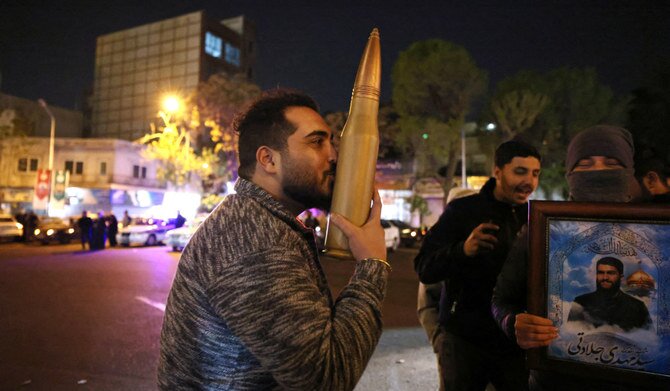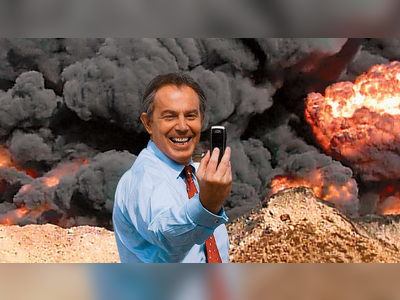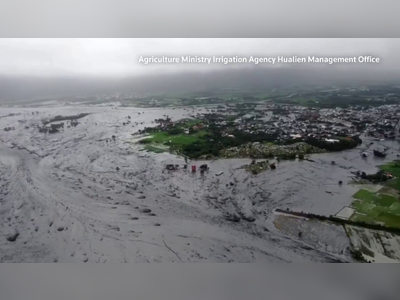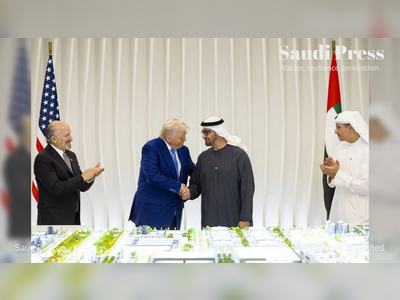
From Allies to Enemies: A Tumultuous 50-Year Relationship Between Israel and Iran
Israel and Iran went from being allies to enemies over the past half century.
In the late 1940s, Israel established close ties with Iran, which was the second Muslim country to recognize the Jewish state after Turkey.
Under the Shah, Mohammad Reza Pahlavi, Israel imported 40% of its oil from Iran in exchange for weapons, technology, and agricultural produce.
Israel's Mossad spy agency trained the Shah's secret police.
However, in 1979, the Islamic revolution in Iran overthrew the Shah, ending the alliance.
Israel did not recognize the new Islamic Republic.
The text discusses the complex relationship between Israel and Iran, focusing on their conflicts and militant groups involved.
The ayatollahs viewed Israel as illegal occupiers of Jerusalem, but commercial ties persisted.
In 1980, Islamic Jihad became the first Islamist Palestinian organization to use violence against Israel, with Iran as its primary supporter.
Despite this, Israel sent around 1,500 missiles to Iran during the Iran-Iraq war to help fight Saddam Hussein.
In 1982, Israel invaded Lebanon to counter Palestinian groups based there, leading to the creation of Hezbollah, which was backed by Iran's Islamic Revolutionary Guard Corps.
Hezbollah waged a campaign against Israeli forces from Shiite strongholds in southern Lebanon.
Israel accused Hezbollah of carrying out attacks abroad, including the 1992 bombing of the Israeli embassy in Argentina, which killed 29 people, and the 1994 attack on a Jewish community center that left 85 people dead.
In 2005, Iran elected ultra-conservative Mahmoud Ahmadinejad, who made controversial statements about Israel and the Holocaust.
In response, Iran resumed uranium enrichment at Isfahan.
When the Iran nuclear deal was reached in 2015, Israeli Prime Minister Netanyahu criticized it as a mistake.
He was among the first to congratulate US President Trump when the US withdrew from the deal in 2018, leading to Iran's resumption of uranium enrichment.
Israel officially aimed to stay out of the Syrian civil war that began in 2011 but carried out hundreds of air strikes against Hezbollah and Iran in Syria from 2013 onwards.
In September 2020, the United Arab Emirates and Bahrain normalized relations with Israel, marking a significant shift in Middle Eastern politics.
The US had been pushing for Israel-Saudi rapprochement but efforts were halted due to the Gaza War.
Tensions between Israel and Iran continued to rise, with Israel accusing Iran of attacks on vessels and Iran accusing Israel of targeted assassinations and sabotage at the Natanz uranium enrichment plant.
Israel was also blamed for targeted attacks on Iranians in Syria, including senior members of the Revolutionary Guard in 2022 and 2023.
The situation escalated in April 2024 when an Israeli airstrike on Iran's consular annex building in Damascus killed over a dozen people, including two senior members of the Revolutionary Guards.
US President Joe Biden warned that Iran was threatening to attack Israel, promising support.
Two weeks after an attack on its consular facilities, Iran sent drones toward Israel, prompting Israel and neighboring countries to close their airspace.
Prime Minister Benjamin Netanyahu prepared for a "direct attack" from Iran, deploying air defense systems.
Under the Shah, Mohammad Reza Pahlavi, Israel imported 40% of its oil from Iran in exchange for weapons, technology, and agricultural produce.
Israel's Mossad spy agency trained the Shah's secret police.
However, in 1979, the Islamic revolution in Iran overthrew the Shah, ending the alliance.
Israel did not recognize the new Islamic Republic.
The text discusses the complex relationship between Israel and Iran, focusing on their conflicts and militant groups involved.
The ayatollahs viewed Israel as illegal occupiers of Jerusalem, but commercial ties persisted.
In 1980, Islamic Jihad became the first Islamist Palestinian organization to use violence against Israel, with Iran as its primary supporter.
Despite this, Israel sent around 1,500 missiles to Iran during the Iran-Iraq war to help fight Saddam Hussein.
In 1982, Israel invaded Lebanon to counter Palestinian groups based there, leading to the creation of Hezbollah, which was backed by Iran's Islamic Revolutionary Guard Corps.
Hezbollah waged a campaign against Israeli forces from Shiite strongholds in southern Lebanon.
Israel accused Hezbollah of carrying out attacks abroad, including the 1992 bombing of the Israeli embassy in Argentina, which killed 29 people, and the 1994 attack on a Jewish community center that left 85 people dead.
In 2005, Iran elected ultra-conservative Mahmoud Ahmadinejad, who made controversial statements about Israel and the Holocaust.
In response, Iran resumed uranium enrichment at Isfahan.
When the Iran nuclear deal was reached in 2015, Israeli Prime Minister Netanyahu criticized it as a mistake.
He was among the first to congratulate US President Trump when the US withdrew from the deal in 2018, leading to Iran's resumption of uranium enrichment.
Israel officially aimed to stay out of the Syrian civil war that began in 2011 but carried out hundreds of air strikes against Hezbollah and Iran in Syria from 2013 onwards.
In September 2020, the United Arab Emirates and Bahrain normalized relations with Israel, marking a significant shift in Middle Eastern politics.
The US had been pushing for Israel-Saudi rapprochement but efforts were halted due to the Gaza War.
Tensions between Israel and Iran continued to rise, with Israel accusing Iran of attacks on vessels and Iran accusing Israel of targeted assassinations and sabotage at the Natanz uranium enrichment plant.
Israel was also blamed for targeted attacks on Iranians in Syria, including senior members of the Revolutionary Guard in 2022 and 2023.
The situation escalated in April 2024 when an Israeli airstrike on Iran's consular annex building in Damascus killed over a dozen people, including two senior members of the Revolutionary Guards.
US President Joe Biden warned that Iran was threatening to attack Israel, promising support.
Two weeks after an attack on its consular facilities, Iran sent drones toward Israel, prompting Israel and neighboring countries to close their airspace.
Prime Minister Benjamin Netanyahu prepared for a "direct attack" from Iran, deploying air defense systems.
Translation:
Translated by AI











